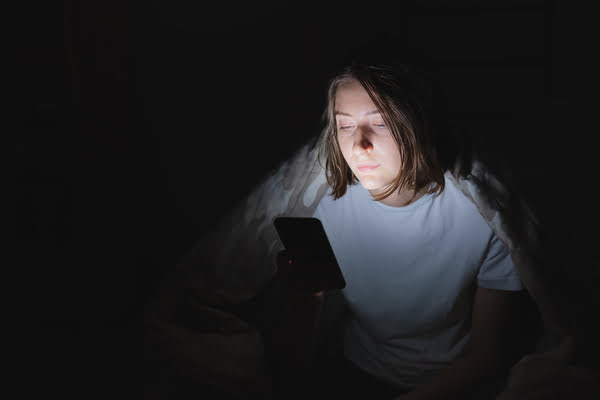Addiction can be defined as experiencing a loss of control when doing an activity leading to repetitive engagement in that activity. When you’re addicted to something, you over-invest your resources (time and energy) into it because you can’t help it.
We all know that people tend to get addicted to drugs, alcohol, food, shopping, gambling, etc., but can you get addicted to a person?
Absolutely!
While ‘people addiction’ is not officially recognized, if you look at the definition of addiction above, you’ll see that people can easily fit the criteria.
Case in point: Social media.
There’s no doubt that social media platforms are designed to be addictive. But what are people really addicted to on those platforms?
They’re not addicted to the platforms. They’re not addicted to the algorithms. They’re addicted to other people. People can watch other people all day. Clearly, that’s an over-investment.
Being addicted to someone is commonly talked about in the context of romantic relationships, but you can get addicted to anyone. You can get addicted to a friend, a coworker, a family member, a romantic partner, a celebrity, or a stranger on social media.
Being addicted to a romantic partner
When you fall in love with someone, your brain makes you addicted to your partner. It has to do this to bring you two closer and make you obsessed with each other.
During the early stages of a romantic relationship, love is indistinguishable- neurologically, psychologically, and behaviourally- from addiction.
After the initial hormonal rush subsides, the addiction subsides, and the romantic partners form a secure bond. If that does not happen, and the addiction continues, we have cause for concern.
When you hear a young couple telling you they’re addicted to each other, you understand. It feels cute.
Imagine partners who’ve been together for a decade saying the same thing. It feels off.
We intuitively know that addiction is the opposite of security.
Signs you’re addicted to a person
1. Idealization
The mind can’t make you over-invest in someone unless you idealize them. What is idealization?
It’s putting someone on a pedestal, overvaluing them, and focusing only on and exaggerating their positive qualities.
This is normal during the initial stages of a romantic relationship but subsides later on.
Fans who idealize celebrities may also get addicted. They may spend hours reading about or watching interviews of their favorite celebrities.
2. Craving and withdrawal
Being addicted to a person can show the same symptoms that we see in other addictions.
Particularly, craving and withdrawal.
You crave to be in contact with the person. When you can’t, you experience the pain of withdrawal.
As a result, in an addictive relationship, the highs are very high, and the lows are very low. You experience severe mood swings.
3. Obsessive thoughts and compulsive behaviors
When you get addicted to someone, they dominate your thoughts. You stop thinking about the other things in your life. In extreme cases, you stop eating and can’t even sleep.
Compulsive behaviors like spying, stalking, and texting/calling all day are also signs of addiction.
4. Neglecting other life areas
This is a natural consequence of one thing dominating your thoughts. Like a plant that isn’t frequently watered, the things you ignore fall by the wayside and slowly die.
When you’re addicted to a person, you may have little or no mental bandwidth for other life areas. Your entire life revolves around the object of your addiction.
5. Insecure attachment
Our attachment styles are an important factor in how we interact in romantic relationships.
People with insecure attachment styles are likely to form addictive and codependent relationships. The anxious and the avoidant attract each other like opposite poles of a magnet.
The former over-invests in the relationship, and the latter under-invests.
The avoidant partner’s under-investment forces the anxious to invest more, and the anxious partner’s over-investment forces the avoidant to invest less and less.
As you can see, this isn’t conducive to a healthy relationship.
While they may initially feel attracted and addicted to each other, people with insecure attachment styles soon experience friction in their relationships.
The anxious partner will tire of over-investing, and the avoidant partner will tire of fighting for their space and individuality.
6. Codependency
People with insecure attachment styles are less likely to be satisfied with their relationships.
This is because their relationship is driven by insecurity, stress, and anxiety.
There is codependence instead of interdependence.
A codependent relationship is one where you overly depend on and over-identify with your partner. People in codependent relationships lose themselves in their relationships. What does losing yourself mean?
It means you lose your identity- your needs, interests, and hobbies.
A healthy, interdependent relationship is one where both partners retain their identities. They find ways to integrate their identity into the relationship. Another way to see it is that they integrate their relationship into their identity.
They meet some of their partner’s needs, let their partner meet some of their own, and are also capable of meeting some of their own themselves.

